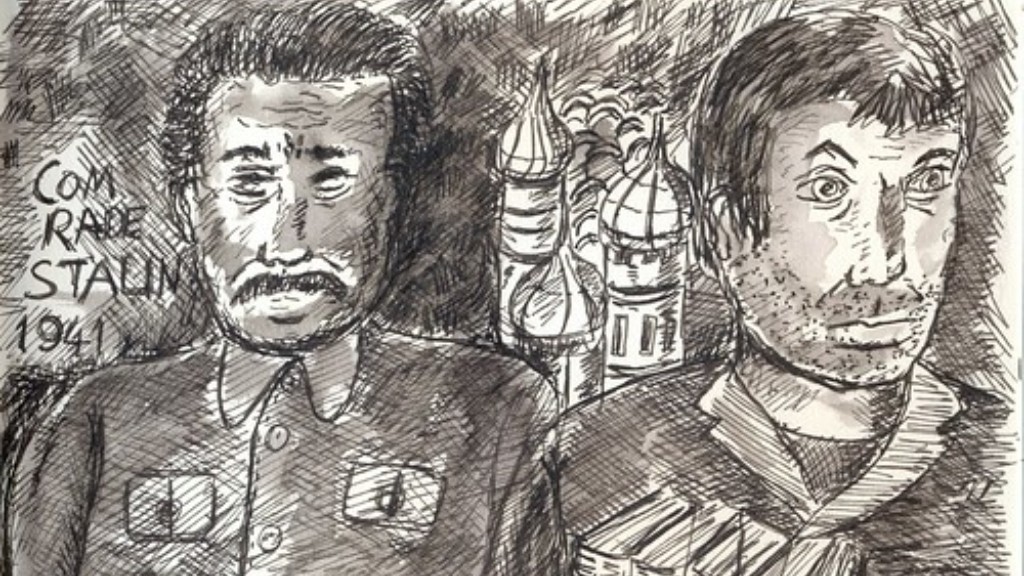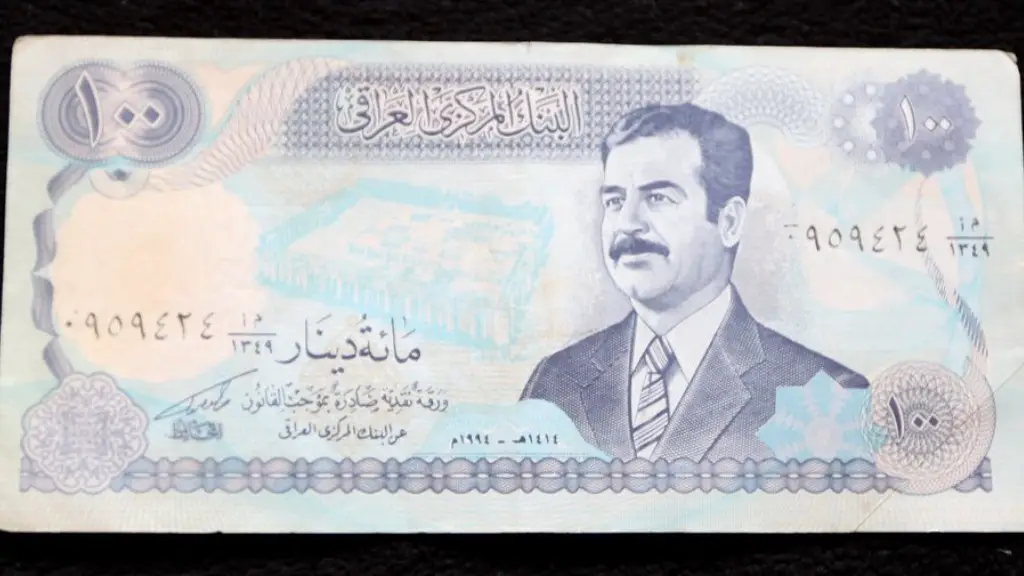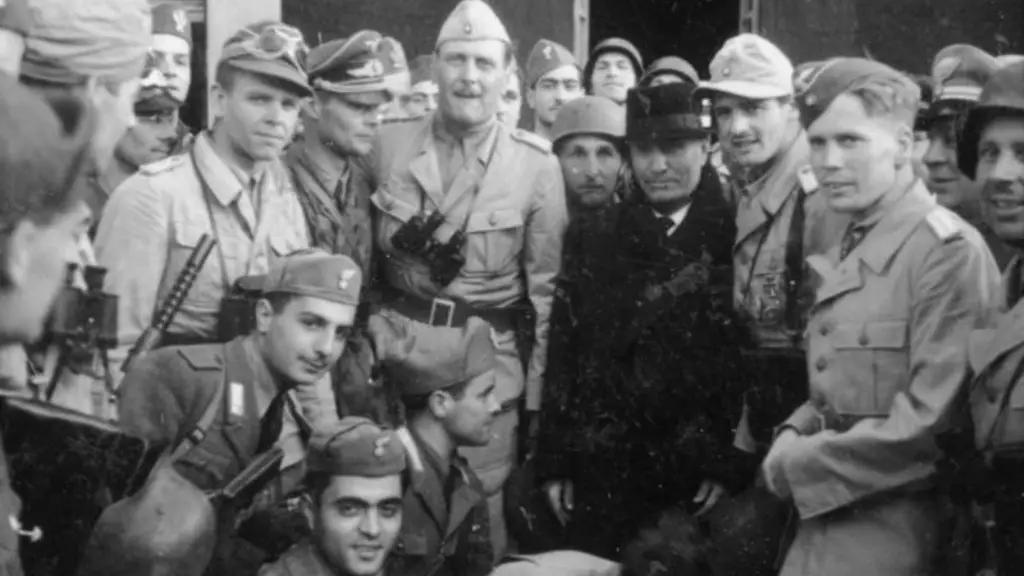Saddam Hussein was hated by many because of his tyrannical rule and the countless human rights violations that occurred during his time in power. In addition, Saddam was responsible for the Gulf War, which resulted in the death and displacement of thousands of people.
There are many reasons why Saddam Hussein was hated. He was a brutal dictator who ruled Iraq with an iron fist. He was responsible for the deaths of thousands of people, and he was suspected of having weapons of mass destruction.
What was Saddam Hussein known for?
Saddam Hussein was Iraq’s fifth president, serving from 1979 until 2003. He was known for his autocratic rule, and for his use of brutal methods to maintain control over the country. Saddam was ousted from power in 2003 by a US-led invasion, and was later tried and executed by the Iraqi government.
The link between Saddam Hussein’s government and terrorist organizations was one of the main justification for the US invasion of Iraq. The Bush administration argued that Saddam Hussein was supporting terrorist groups like al-Qaeda and that the Iraq war was part of the broader War on Terrorism. However, there is no evidence that Saddam Hussein’s government was supporting al-Qaeda or any other terrorist organization.
What was the downfall of Saddam Hussein
Saddam Hussein’s legacy is still a controversial and divisive issue more than a decade after his death. Saddam was overthrown in April 2003 following the US-led invasion of Iraq, and executed for crimes against humanity in 2006. But many Iraqis still view Saddam as a national hero, and his rule is seen as a golden age compared to the instability and violence that has followed his ousting. Saddam’s legacy continues to be a source of division in Iraq.
Saddam Hussein, the former president of Iraq, was captured by the United States military in the town of Ad-Dawr, Iraq on December 13, 2003. The operation, codenamed “Operation Red Dawn”, was named after the 1984 American film Red Dawn.
What did Saddam Hussein do to Kuwait?
Saddam Hussein’s invasion and occupation of Kuwait was motivated by a desire to acquire the nation’s large oil reserves, cancel a large debt Iraq owed Kuwait, and expand Iraqi power in the region. The invasion led to a prolonged and bloody conflict, ultimately resulting in the defeat of Iraq and the liberation of Kuwait.
More than 60 US Defense Intelligence Agency officers provided combat planning assistance, and the US also provided battlefield intelligence including satellite pictures to Saddam Hussein’s military. This information was used by the Iraqi military to plan their attacks and target US troops.
Who owns Iraqi oil now?
The Rumaila oil field is one of the largest oil fields in the world, located in southern Iraq. It is owned by the Iraqi government and operated by a consortium of BP and China National Petroleum Corporation (CNPC). The field has an estimated 15 billion barrels of crude oil reserves and produces about 1.5 million barrels of oil per day.
The United States imported an average of 157,000 barrels of petroleum per day from Iraq in 2021. This accounted for 5 percent of total U.S. petroleum imports and was the seventh-largest source of imported petroleum.
What did Saddam say before he died
Sami al-Askari was a witness to the execution of Saddam Hussein, and he said that Saddam shouted “Allahu Akbar” before he was hanged. This is significant because it shows that even in his final moments, Saddam Hussein was still dedicated to the Muslim cause. This is an inspiration to all Muslims who are fighting for their rights and for the liberation of Palestine.
Saddam adhered to an eccentric interpretation of Islam that Ba’thist intellectuals had developed in the mid-twentieth century. For him and many other Ba’thists, Islam was the religion of the Arabs. Muhammad was an Arab prophet who preached a divine message intended for his Arab followers.
What happened to Iraq after Saddam?
The Iraq War was a devastating conflict that lasted for over a decade. Tens of thousands of people were killed, wounded, or affected by the conflict. More than two million Iraqis were displaced, as the country was plunged into chaos and violence. The United States military played a major role in the conflict, first invading Iraq in 2003 and then remaining on Iraqi territory for almost a decade. The war had a profound impact on the people of Iraq, and the country is still recovering from the damage done by the conflict.
Saddam Hussein’s goals as president were to supplant Egypt as leader of the Arab world and to achieve hegemony over the Persian Gulf. In September 1980, he launched an invasion of Iran’s oil fields, but the campaign bogged down in a war of attrition.
Is Iraqi money with Saddam on it worth anything
The Zimbabwean dollar is no longer an active currency, so it has no value for financial purposes.
The Syrian conflict is an ongoing civil war that began in 2011. The main phase of the conflict ended following the defeat of the Islamic State of Iraq and the Levant (ISIL) in the country in 2017, but a low-level ISIL insurgency is ongoing in the rural north parts of the country.
Why did the US want Iraq out of Kuwait?
August 1990, Iraq invaded the country of Kuwait to its southeast in a bid to gain more control over the oil supply in the Middle East. In response, the United States and the UN Security Council demanded that Iraqi dictator Saddam Hussein withdraw Iraqi troops from Kuwait, but Hussein refused. This eventually led to the Gulf War, where a coalition of nations led by the US liberated Kuwait from Iraq.
The three most serious reasons for involvement in the Middle East are oil, order, and weapons proliferation. Oil is the most tangible interest, though not necessarily the most important. Oil provides about 40 percent of American energy, and about 45 percent of this oil is imported. Order is a more nebulous interest, but it is perhaps the most important. The United States has an interest in promoting stability in the region in order to ensure the flow of oil and to contain the spread of radicalism. Weapons proliferation is also a major concern, as the United States does not want the region to become a major arms producer and supplier.
Final Words
Saddam Hussein was generally considered to be a cruel and dictatorial leader. He was frequently accused of human rights violations, and was believed to have ordered the killing of many political opponents and innocent civilians. He also engaged in armed conflict with several neighboring countries, which led to the death and displacement of many people. All of these factors likely contributed to why Saddam Hussein was hated by so many people.
Many people in the world hated Saddam Hussein because of the horrific things that he did during his reign as the leader of Iraq. He was responsible for the deaths of hundreds of thousands of people, and he also used chemical weapons against his own people. He was a ruthless dictator who terrorized his own citizens, and he was also responsible for starting two major wars. In the end, Saddam Hussein was brought down by his own people, and he was executed for his crimes.





